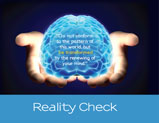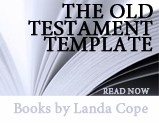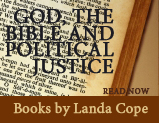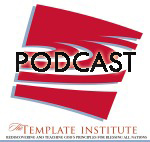Cinco Supuestos
Red de Trabajo de la Realidad
 Our assumptions lay the grid of reality as we understand and practice it. We fit the information that we receive through experience and education onto that grid. We measure the unseen world from that grid and act accordingly.
Our assumptions lay the grid of reality as we understand and practice it. We fit the information that we receive through experience and education onto that grid. We measure the unseen world from that grid and act accordingly.
(This is an excerpt taken from God, la Justicia Biblia y Políticos, the book Landa is currently writing.)
Nos sofisticados tejer tapices de la realidad y la verdad que tienen un profundo impacto en la forma en que vemos el mundo y cómo funciona, y lo que percibimos los problemas y las respuestas sean.
For example we observe that matter is consumed to create energy and then assume that matter must be consumed by energy. We might assume “matter is limited” because that is our experience. Luego ponemos estos dos supuestos, junto a la conclusión de que la energía requiere el consumo de materia, therefore the universe is running down and we are running out ofmatter. We build a view of economics on this and assume “limited resources.” We build our concept of community and population on this and assume we are having “too many babies” and “population is the problem.” We might begin to believe that birth control and abortion are our only hope for survival. Shrinking oil reserves increase our anxiety and we might begin to assume this is the end of man and earth, as we know it. We base our scientific research on this and assume the answer to environmental devastation is to limit population growth. This is profound and implicative stuff and our world is working with assumptions like this everyday. We accept them as “reality.” We work to design solutions around these “beliefs.” We work to legislate them into law. But are they true? Physicist are at least looking at the possibility that the cosmos is actually creating matter as well as consuming it. What other assumptions are we building on that may not be true?
¿Cómo podría alguien evaluar los supuestos de nuestra cultura o las creencias de la edad en que viven? Our data and experience are limited. Not one of us was presentat the origins of the universe. Not one of us has, ni puede, travel to the extremities of the cosmos and document exactly how it works. We cannot know everything but we can and do know “something.” We are all working with the information we have and with the assumptions our experience and culture give us.
If our assumptions are true our view of reality may be true. If our assumptions are false our view of reality will be distorted and our solutions, aunque bien intencionada, puede ser sesgado los resultados que producen no habíamos destinado, o peor aún, crear mayores problemas.
Cinco supuestos fundacionales de Dios
Dios nos da cinco verdades "reveladas" en la Escritura sobre la que construir nuestra comprensión de la realidad. These truths must be “revealed” by God because they are beyond our human ability to experience or know. All Biblical thought and teaching is anchored in these five assumptions. Como cristianos, we hold them to be true because God is real and He knows. He reveals these truths to us in the cosmos, in Scripture and through His Son. When we hold onto these five Biblical assumptions we cannot drift far from a Biblical view of reality.
Cinco supuestos fundacionales de Dios
1. Dios es!
2. Dios es el creador del Universo, el mundo material, visto y no visto.
3. La raza humana, masculino y femenino, son creados a la imagen de Dios y Su propósito central de toda la creación.
4. Todo lo que Dios ha hecho está infectada por el pecado y caído.
5. Todo lo que se puede canjear
(Si usted desea más información por favor visite el enlace anterior llamada, “Recursos relacionados” y luego elija “Libros de Landa”. Esta sección se encuentra en el capítulo dos.)







